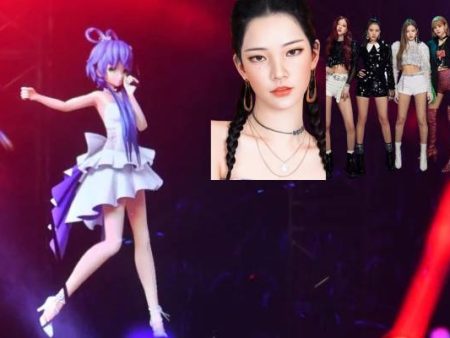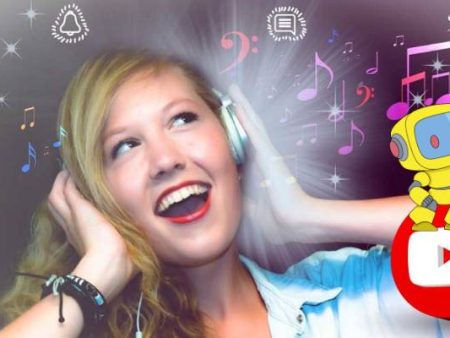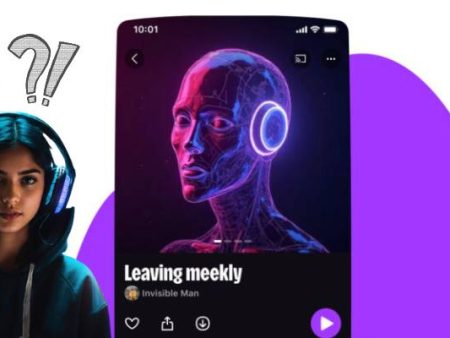There’s a moment I’ll never forget. A friend played me a track and asked, “Who do you think wrote this?”
I guessed some up-and-coming indie artist—maybe one of those hidden gems on SoundCloud. He laughed and said, “Nope. AI wrote it.”
That simple exchange stopped me in my tracks. I couldn’t help but wonder: If machines can write songs that sound like they belong on Spotify playlists, what does that mean for musicians, for creativity, for the future of music itself?
The rise of AI music generation isn’t just about tech. It’s about art, identity, and whether the raw soul of music can survive in a world shaped by algorithms.
This article dives into all of it—the optimism, the unease, the research, the numbers, and my own take as someone who cares deeply about both technology and music.
From Mozart to Machine: A Quick History of Music and Technology
Music has always evolved with technology. The piano itself was once revolutionary. The phonograph shocked listeners who thought recorded sound was almost supernatural. Synthesizers redefined pop and electronic music in the 1980s.
So it’s not surprising that we’re now at the “from Mozart to machine:” era, where software doesn’t just play or record—it creates. What once seemed like science fiction is happening in studios, laptops, and even mobile apps.
The question isn’t whether machines can compose. They already do. The question is whether they’re contributing to music as art—or diluting it.
The Numbers: Why AI in Music Matters Right Now
Before going too deep, let’s ground ourselves in data.
- According to Grand View Research, the AI in music market size was valued at over $229 million in 2022 and is expected to grow at a compound annual growth rate (CAGR) of 28.6% from 2023 to 2030.
- A Statista survey in 2023 found that 60% of respondents in the music industry believed AI tools would become standard for creating background tracks, jingles, and royalty-free music.
- Major platforms like Spotify are experimenting with AI-driven personalization, not only curating playlists but also exploring AI-generated compositions.
That means we’re not talking about niche experiments anymore. This is becoming mainstream.
The Promise: What AI Brings to the Table
I’ll admit it—I’ve been impressed by what AI can do. Here are some of the most exciting benefits:
- Accessibility for New Creators
Not everyone has years of music theory under their belt. With AI, a teenager with a laptop can generate melodies or beats in seconds.
This democratization could unleash creativity from people who otherwise wouldn’t have touched composition.
- Speed and Efficiency
Need background music for a video? AI can generate 10 options in under a minute. Compare that to the days or weeks a human composer might take. That’s efficiency on steroids.
- Endless Experimentation
AI doesn’t get bored. It can generate hundreds of variations on a theme, giving artists a massive sandbox for inspiration.
- A Partner, Not Just a Tool
Some musicians treat AI as a collaborator—feeding it prompts, remixing its output, layering human vocals over machine-created tracks. Used this way, it becomes less about replacement and more about augmentation.
In fact, some of the best ai music tracks I’ve heard were hybrids—human-guided melodies with AI-driven harmonies or rhythms.
The Uneasy Questions: Can AI Capture Human?
Here’s where my skepticism creeps in. The soul of music has always been about something more than notes and structure.
It’s about grief, joy, rebellion, or longing. That leads me to ask: can ai capture human emotion in the same way a songwriter pouring their heart out can?
Some say yes. Machines can analyze millions of songs, detect patterns of “sadness” or “euphoria,” and reproduce them.
Others argue that’s imitation, not creation. An AI can mimic the sound of heartbreak, but it doesn’t know what heartbreak feels like.
I personally believe AI can simulate emotion—convincingly, at times—but the spark that comes from lived experience still belongs to us.
Listening to a machine-generated ballad about loss may sound haunting, but it will never carry the weight of Adele singing after a breakup.
The Dark Side: What We Risk Losing
It’s tempting to glorify AI’s potential, but ignoring the dark side would be irresponsible.
- Homogenization of Music
When algorithms dominate, there’s a risk that songs will start to sound the same—formulaic, predictable, and engineered for clicks rather than expression.
- Devaluation of Human Labor
What happens to session musicians, composers for ads, or background music creators when AI can produce similar work for pennies? Entire livelihoods could be disrupted.
- Ethical and Legal Grey Zones
Who owns AI-generated music? The person who typed the prompt? The developers of the model? Or is it free for anyone? Copyright law hasn’t caught up yet, leaving creators in murky waters.
- Loss of Human Imperfection
Some of the most memorable songs have “flaws”—an unexpected chord change, a slightly off-beat drum, a raspy vocal that cracks.
AI tends to smooth out those imperfections, but in doing so, it risks stripping out the humanity that makes music feel alive.
Case Studies: Where AI Music Is Already Making Waves
- Endel: An app that uses AI to generate personalized soundscapes for relaxation and focus. It’s even signed a distribution deal with Warner Music Group.
- Aiva: An AI composer that creates classical music scores used in films and video games.
- OpenAI’s Jukebox: A research project that can generate raw audio in the style of famous musicians, sometimes indistinguishable from the real thing.
- Amper Music: Allows creators to generate royalty-free tracks for content with just a few clicks.
These examples show how embedded AI already is in the ecosystem—from wellness to entertainment to advertising.
The Future of Songwriting: Between Humans and Machines
So what about the future of songwriting: is it human, machine, or both?
Here’s where I see things heading:
- Hybrid Creation: Artists will increasingly use AI as a co-creator—an idea generator, a backing track producer, a chord progression suggester.
- Personalized Music: Imagine music tailored to your exact mood in real-time, composed uniquely for you every time you hit play.
- Collaborative AI Tools: Platforms will emerge where musicians can jam with AI in real-time, blending improvisation with algorithmic suggestion.
- Industry Shifts: Composers may move from creating entire works to curating, editing, and refining AI outputs.
This doesn’t mean human artistry disappears. It evolves. Just as synthesizers didn’t kill guitarists but expanded music’s palette, AI will likely reshape rather than erase the songwriter’s role.
Personal Reflection: My Emotional Conflict
I have to admit—I feel torn. On one hand, hearing the best ai music gives me goosebumps at how far we’ve come technologically.
On the other, I worry about a world where music feels mass-produced and soulless.
I think about nights when I put on headphones to process heartbreak, or the rush of joy when a song mirrors my exact mood.
Those moments feel sacred. They feel human. Part of me doubts an algorithm, no matter how advanced, could ever replicate that connection.
But maybe I’m wrong. Maybe younger generations will grow up with AI-generated songs that become their soundtracks, and they’ll form real emotional bonds with them. And who am I to say their experience is less valid than mine?
Practical Tips for Musicians Using AI Without Losing Themselves
If you’re an artist dabbling in AI, here are some ways to balance innovation with authenticity:
- Use AI for Inspiration, Not Replacement
Let it suggest chord progressions or beats, but inject your own story into the lyrics and performance. - Embrace Imperfections
Don’t polish every rough edge. Keep the cracks in your voice, the unexpected rhythm—those are what make listeners lean in. - Be Transparent
Audiences respect honesty. If AI helped, say so. It doesn’t diminish your artistry; it shows you’re exploring new tools. - Stay Curious but Critical
Experiment, but always ask: does this still feel like me?
Conclusion: Between Awe and Unease
So, how is AI redefining music creation? It’s blurring the line between algorithm and art, between tool and collaborator, between imitation and inspiration.
It brings staggering potential—making music accessible, efficient, and experimental. But it also brings risks—homogenization, ethical dilemmas, and the erosion of human uniqueness.
In the end, I think the answer isn’t about choosing sides. It’s about balance. Machines can generate, but only humans can mean.
If we use AI wisely—as a brush, not the painter—we might just discover a new golden age of creativity.
And if nothing else, AI has forced us to confront a question artists have rarely asked: What is it, exactly, that makes music human?


